Autism Awareness Campaign
We dedicate this edition of our newsletter to veterinary students within the autism spectrum.
How To Help The Student Within The Autism Spectrum Succeed In Veterinary School
The presence of students on the autism spectrum is probably the elephant in the room in veterinary school. These veterinary students will likely face many challenges while in veterinary school. But with understanding and knowledge, autistic veterinary students can succeed in their studies and become excellent practitioners. Here are some tips on how to help them:
Understand their condition.
Understand that autism is a neurological disorder that affects how people process information. It is very important to point out that the veterinary student within the autism spectrum is different but not inferior. Do not be afraid to ask for help if you do not understand something the student says or does.
Respect their need for routine and predictability.
An autistic student would prefer to study in an environment where abrupt and constant changes in the methods of teaching are the norm. Constant changes can make the students underperform due to increasing stress levels compared to non-autistic students. The professor can help them stay organized by telling them in advance if any classroom changes or teaching methods are about to occur. When giving instructions, be clear and concise. Students on the spectrum may have difficulty understanding complex directions or multitasking. Breaking tasks into small, manageable steps can help an autistic student succeed.
Be patient with them.
Be patient when explaining things—autistic students may take longer to understand instructions. Be patient—they will likely take longer to complete tasks due to their autism. Allow them to take breaks as needed and understand if they must leave class or work abruptly.
Offer encouragement and support.
Encourage them and offer support, but don't push them too hard—they will succeed in their own time and way. Let them know you are there for them, no matter what happens. Autistic students often have difficulty with social interaction but may excel in other areas, such as memory, logic, and visual skills. Use their strengths to your advantage—praise them for their abilities and encourage them to use their strengths. Encourage them to get involved in extracurricular activities, such as clubs or volunteering opportunities. Let them know when they have done a good job, even if it is a small task.
Respect their sensory sensitivities.
The professor or laboratory instructors need to be aware that some students may be overwhelmed by loud noises or strong smells. Autistic students may need to take breaks or step out of the room if they become overloaded. It is important to be understanding and not make the student feel like they are a burden.
Be an advocate for them within the veterinary school administration.
Encourage the school administration to develop study programs that might suit the students better. Instead of clumping everything into a 4-year program, some students may benefit from an extended 5-year curriculum that allows them to learn at their own pace more comfortably. Work with the autistic student to identify what kind of support they need and be their advocate in asking for accommodations from the veterinary school.
One final word of advice: autistic students are not “one size fits all.” Each student is unique and will have their individual needs. Getting to know autistic students and what works best for them is important. With understanding, knowledge, and patience, any veterinary student—autistic or not—can succeed in their studies and become an excellent veterinarian.
A MESSAGE TO THE LIVESTOCK DEPARTMENT OF SINDH
By Dr. Kamran Ali Chandio
Ever since this world came into existence, there have been such challenges in front of this world that if you think deeply for a while, you will feel that the reality of this world is about to end. Yet, instead of leaning forward, men have not only fought with it but have also succeeded. Recently, an example was in front of us when the coronavirus appeared; for a moment, it was as if human life had stopped, and it seemed that everything was going to end. But the whole world saw that instead of giving up, humanity fought it with the help of science and recovered.
From the beginning of the world until now, countless deadly diseases have killed billions of people and animals. They will be more dangerous in the future, so we should protect human health. Also, take care of the health of livestock because animals can spread many deadly diseases from animals to humans.
As the lives of humans are essential in this world, the lives of animals are also meaningful. Because they should be treated more than humans, thousands of dollars are spent on their vaccines. But we have a system that is a bit old. Some time ago, when many people died from dog bites, our health department did not start vaccinating dogs.? So instead of keeping a budget of billions of rupees to remove them, even today, you can search on Google to see that modern countries remove dogs. Or take care of them by getting them vaccinated.
Much research is being done on animal diseases and their health because many animal diseases can be transmitted from zoonotic animals to humans.
Many diseases are common in animals, but lumpy skin disease has spread. Thousands of animals have died from this disease, and thousands of animals are facing this disease. This disease started almost a century ago. In 1929, the Central African region started in Zambia, but now it has spread to more than half the world.
Recently, this disease has reached Pakistan and is gradually spreading all over the country. This disease is transmitted from one animal to another by touching each other. Lumpy skin disease can also occur with large rashes on the animal's skin; the body is known as watery eyes and fatness are also symptoms of this disease. The dangerous thing is that this disease can also be present in an animal without any symptoms.
Due to this disease, Malvand (animal owners) and business people have suffered a lot; one is that their animals, worth crores of rupees, are dying, and the other is that their business has stopped due to the low production of milk.
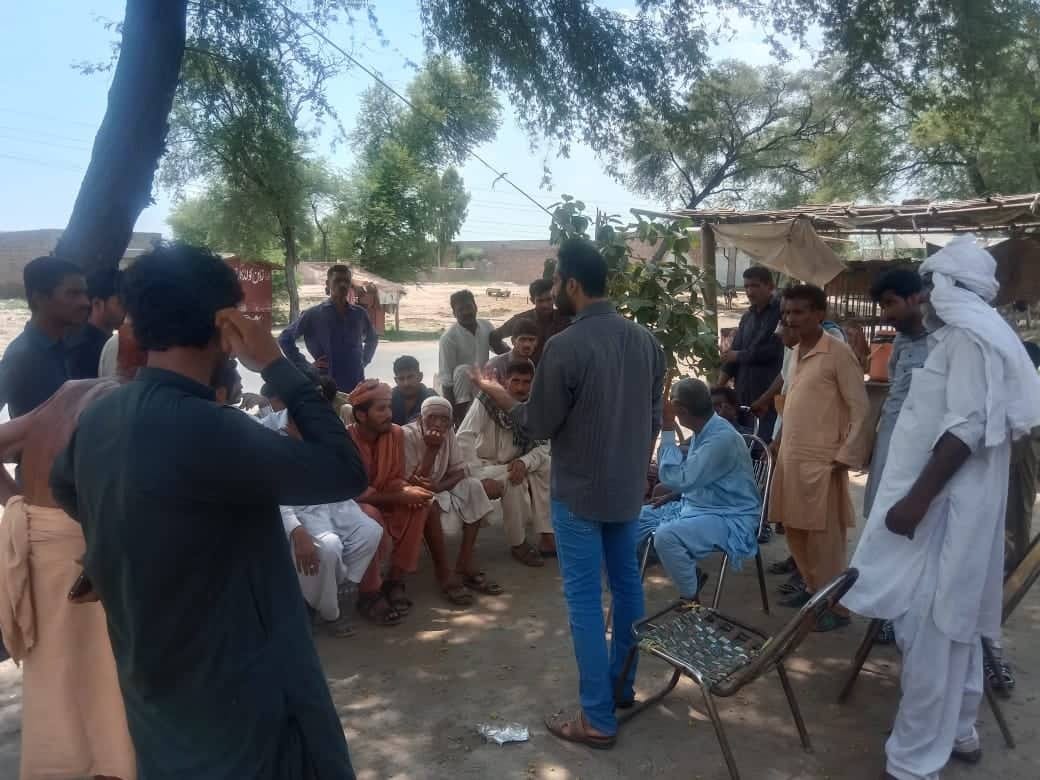
The Livestock Department of Sindh has not yet been able to take extraordinary measures to deal with this disease and to prevent it, nor has any bio-security been taken care of. He is vaccinating them; neither are they wearing masks nor gloves. I believe this disease cannot be transmitted from animal to human. Still, it can be transferred to another animal by human hands. Therefore, in every city of Sindh, the Pakistani government must issue instructions to the veterinary hospitals and doctors in the affected areas to establish bio-security measures and a comprehensive vaccination program and take samples of animals suffering from this disease and send them to laboratories for research.
And awareness campaigns should be conducted among the people about this disease because people in this advanced age read stories from priests and beggars to get rid of their animals and think that by doing this, their animals will recover. According to the Livestock Department of Sindh, the vaccine for Lumpy Skin Disease, requested from abroad, should be administered to healthy and infected animals to avoid this disease.
Therefore, the Livestock Department of Sindh should take serious steps to prevent this disease from spreading further, involve veterinary students in this process, and employ unemployed veterinary doctors on an emergency basis. With this, the livestock department can fight against such diseases in the future.



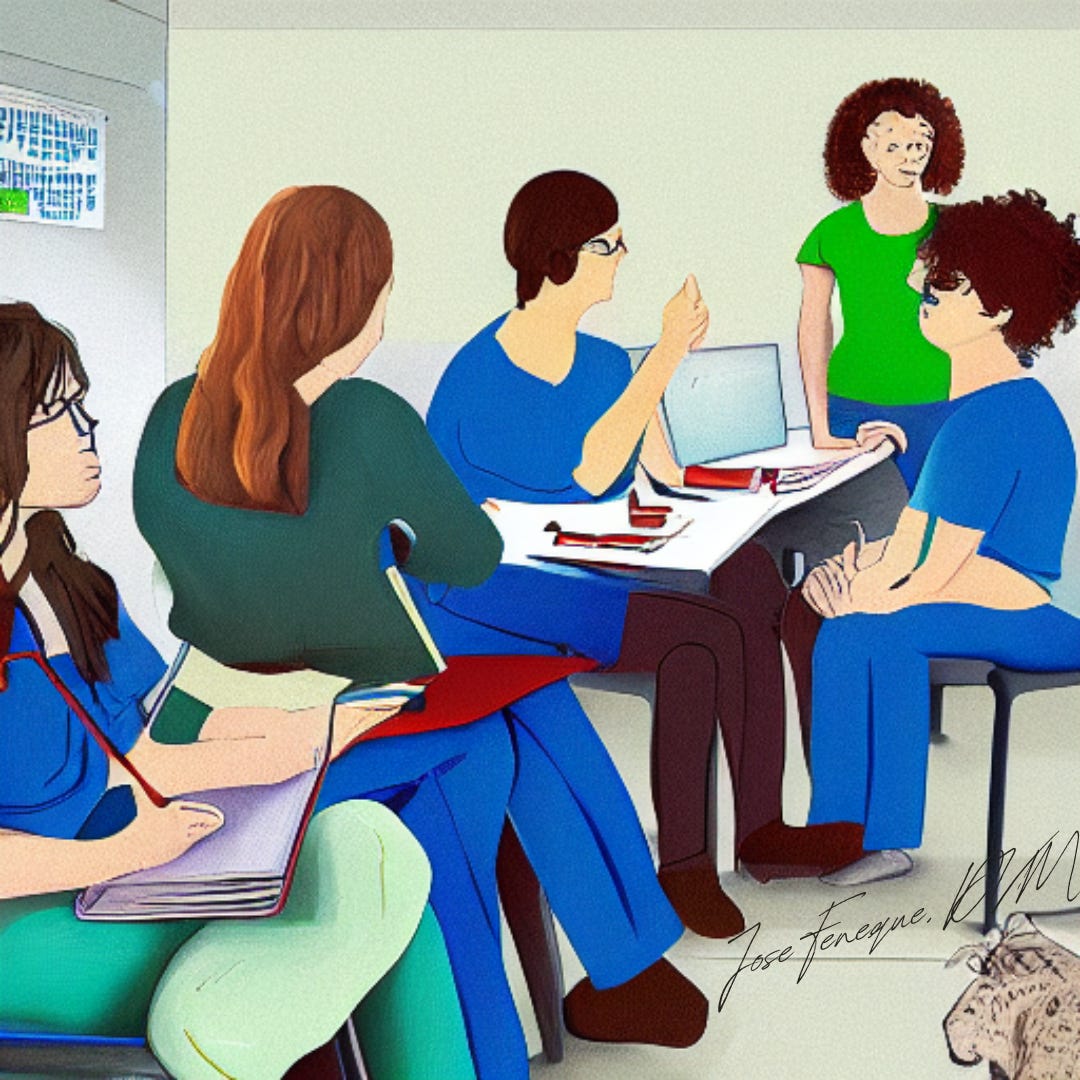



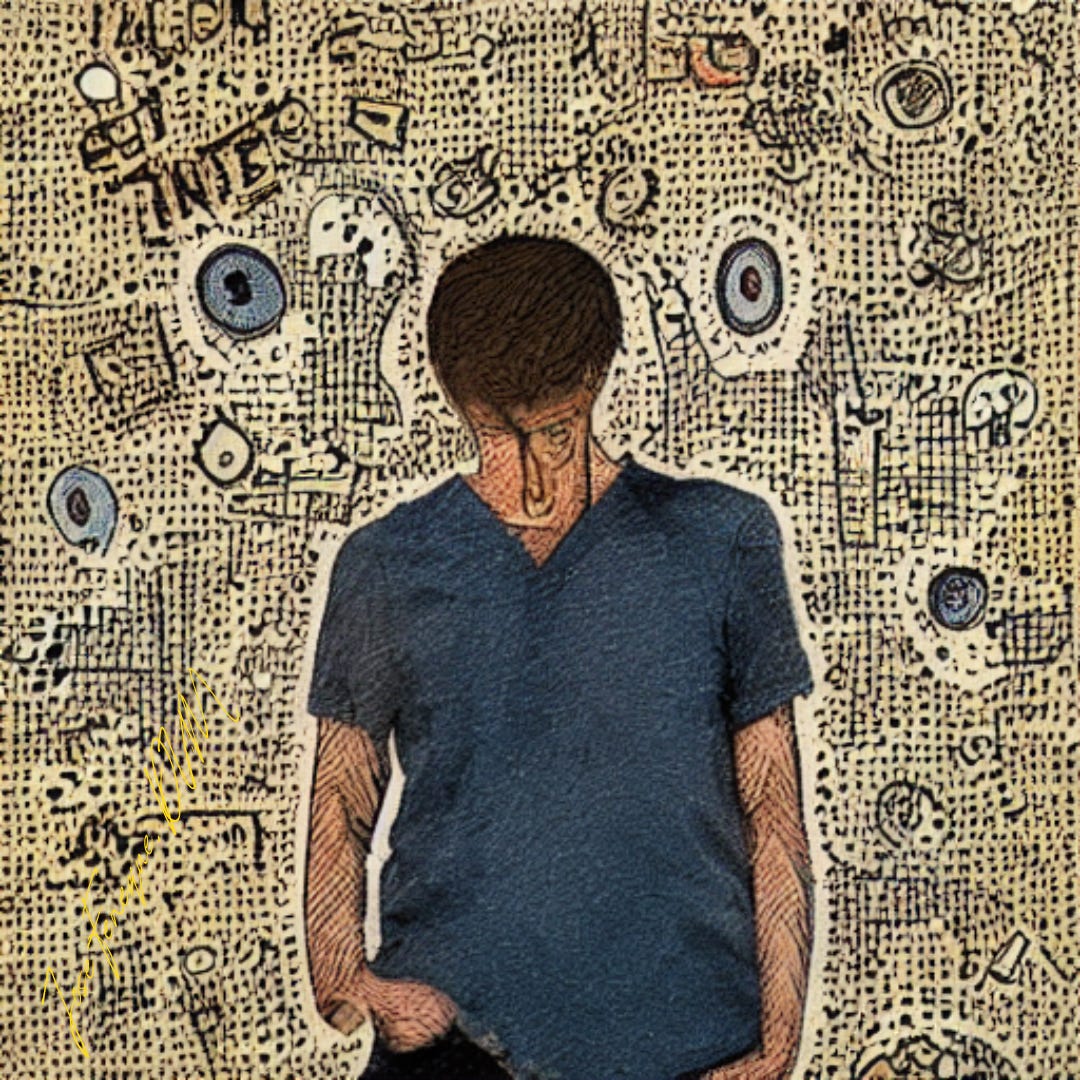


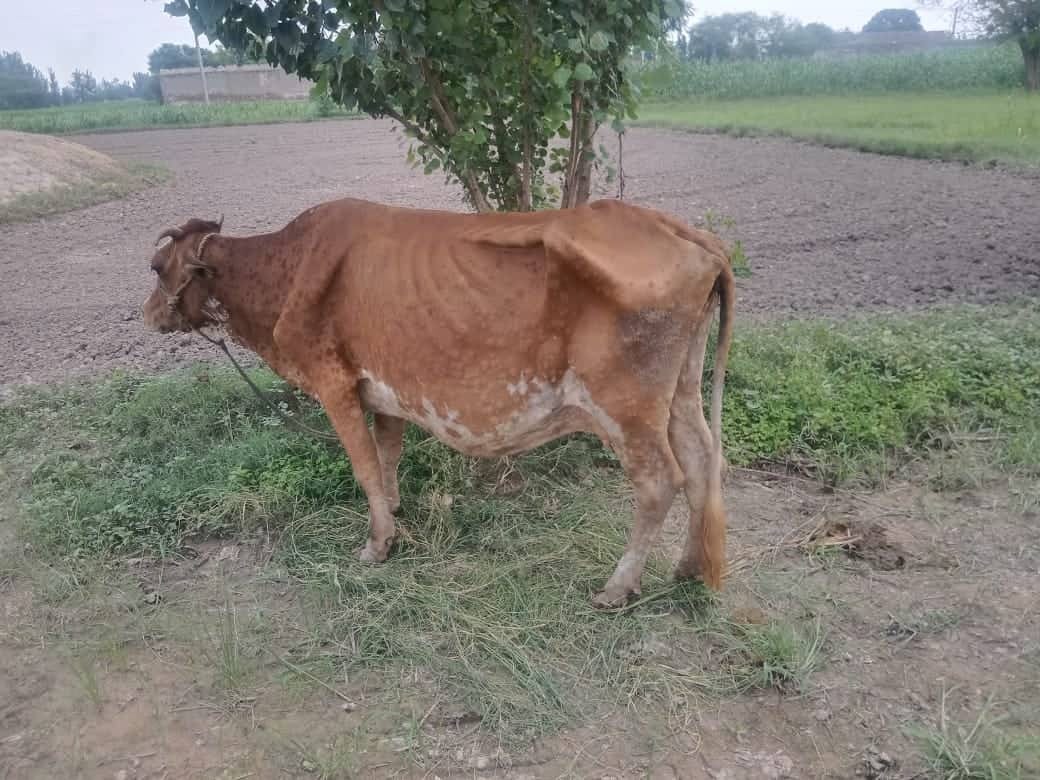
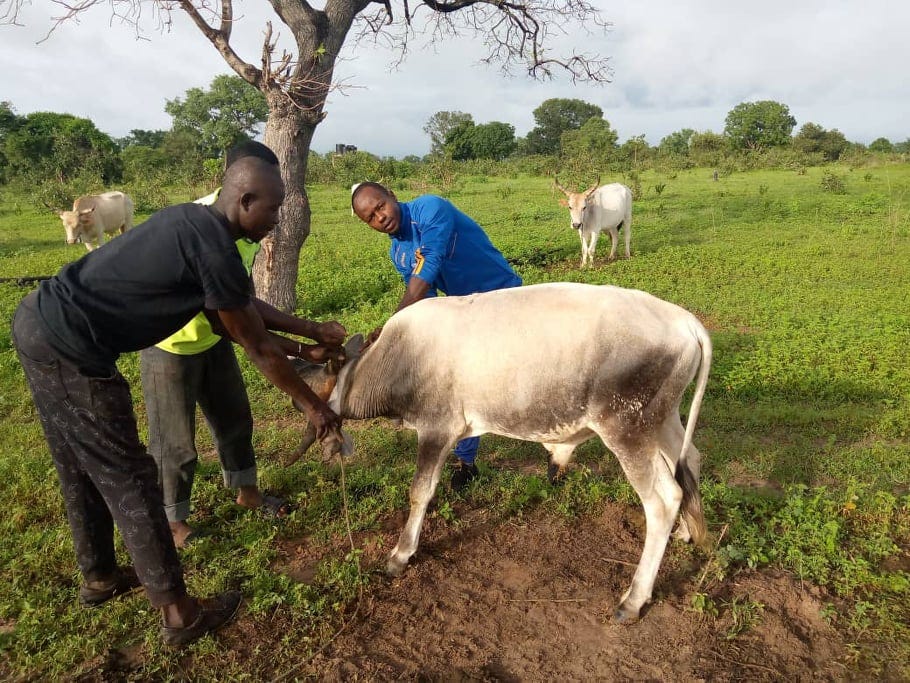
Question. In your experience, is there a link between regular deworming (using fenbendazole) and cancer in animals? There is a growing literature showing fenbendazole use in humans eradicates and may prevent various cancers https://fenbendazole.substack.com